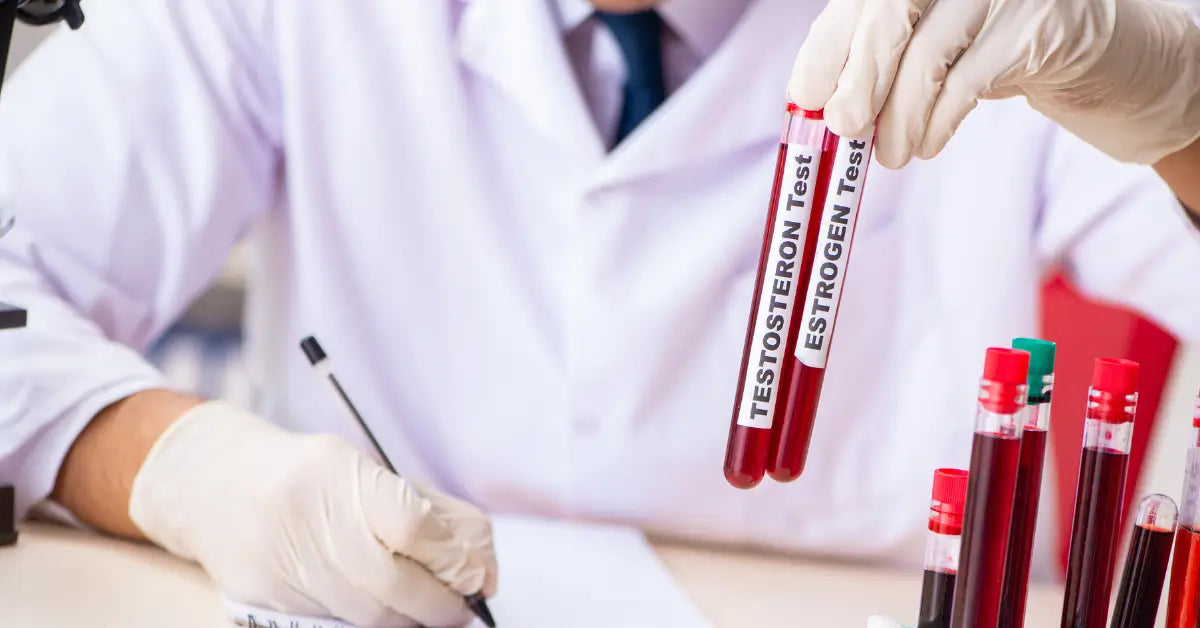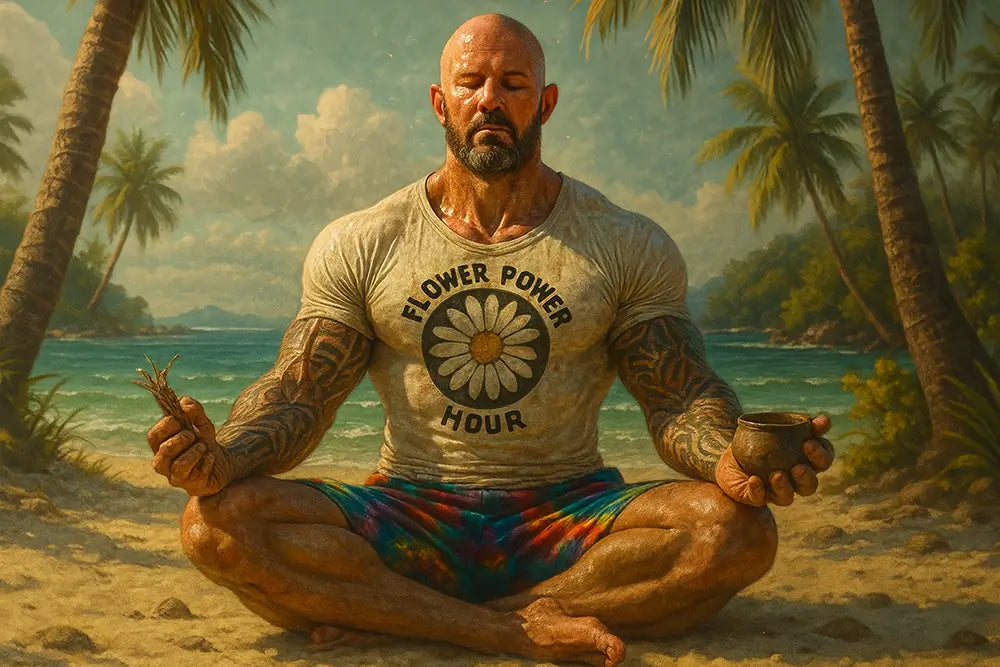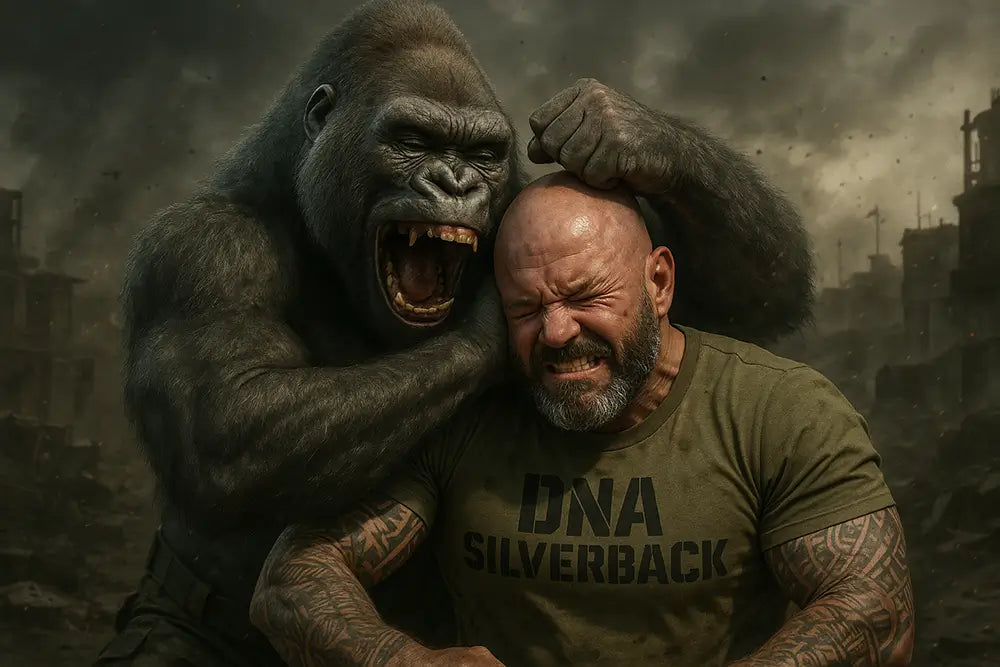Why it’s vitally important for all men to understand their hormones
Welcome to our three-part guide that helps you understand more about your hormonal health, menopause in men, low testosterone symptoms and more.
The fact is that most men don’t pay attention to their health until there’s an issue that needs their attention. In fact, men are 33 percent less likely than women to have visited a doctor within the past year.
Men are also twice as likely to wait more than two years between doctor visits. More than 40% of men don’t go to the doctor at all unless they have a serious issue on their hands.
This is particularly true of hormonal health as men find it more challenging to verbalise and express their concerns and fears than women and often don’t recognise the symptoms or simply put them down to ‘ageing’.
This has major consequences as late presentation of some conditions can have grave impacts on men’s prognosis.
Hormonal changes can be difficult to manage, especially if you’re unaware of how the chemicals in your bodywork.
We’ve put together an overview of some of the common terms in men’s hormonal health, and some of the less obvious ones to help you navigate your way through this tricky but crucial subject.
ADRENALS
We all have two adrenal glands which sit on top of each kidney.
The adrenal cortex produces three hormones including the Adrenal androgens - male sex hormones dehydroepiandrosterone (DHEA) and testosterone.
ADRENAL FATIGUE
Low levels of cortisol, your stress hormone, can cause adrenal fatigue. Often resulting from long exposures to stress. This can cause havoc on your body as it attempts to stay in homeostasis.
ANDROGENS
Androgens are a group of hormones that play a role in male traits and reproductive activity. Present in both males and females, the principal androgens are testosterone and androstenedione.
ANDROPAUSE a.k.a "MANOPAUSE"
Male menopause is the more common term for andropause, sometimes also referred to as the "Manopause". It describes age-related changes in male hormone levels. The same group of symptoms is also known as testosterone deficiency, androgen deficiency, and late-onset hypogonadism.
CORTISOL
Cortisol is popularly known as the stress hormone. It is released by the adrenal glands which are located on top of the kidneys. Its primary role is to increase blood sugar for fuel. Other benefits include macronutrient absorption, blood pressure regulation, decreased inflammation, sleep, mood, and motivation.
Like other hormones, the body tries to closely regulate the levels, however due to today’s modern lifestyles, poor diet, lack of sleep, amongst many other factors, it is very common for this hormone to be imbalanced. Elevated cortisol at night interferes with the anabolic output of hormones such as testosterone, growth hormone, and melatonin. It can lead to weight gain, acne, testosterone deficiency and more.
DIHYDROTESTOSTERONE (DHT)
Is the most potent androgen that is most well-known for regulating hair cycling / production. It is continually produced by your body - as opposed to testosterone which is produced overnight. DHT is the by-product of an enzyme breakdown of testosterone which is perfectly natural – however some men and women are sensitive to this (genetically)
Up to 10% of testosterone is normally converted into DHT but it is more powerful. DHT attaches itself to the receptor cells of genetically predisposed hair follicles, DHT prevents proteins, vitamins, and minerals from providing the needed nourishment to sustain life in these follicles.
It’s important to note that it’s the conversion of testosterone that produces DHT and genetic predisposed sensitives to this conversion – not testosterone per se that usually leads to hair loss.
ENDOCRINE SYSTEM
The endocrine glands are responsible for producing, storing, and releasing hormones into your blood. Multiple endocrine glands control different aspects of your body functions.
ERECTILE DYSFUNCTION
Erectile dysfunction (ED), or impotence, is the inability to consistently initiate or keep an erection long enough to have satisfactory sex. To maintain an erection, blood must be able to flow into and stay in the penis until orgasm. Low level of testosterone can cause erectile dysfunction. However, quality testosterone booster supplements can help maintain optimal levels of testosterone in the body.
Free Testosterone
In the bloodstream, sex hormones can be found in two forms: free and bonded. Hormones can bind to different molecules. In the case of testosterone and oestrogen, one of those molecules is SHBG. (Another is the protein albumin)
When a sex hormone is either free or bonded to albumin, the hormone is bioavailable. This means it can enter tissue and have a biological effect.
In contrast, when bound to SHBG, the sex hormone is essentially inactive and has minimal—if any— biological impact on the body until it’s released.
GYNECOMASTIA a.k.a "MOOBS"
or Man Boobs
Gynecomastia is breast enlargement in boys or men. This condition results from an imbalance between the hormones testosterone and oestrogen. Testosterone boosters with oestrogen blocker supplements can act as right remedy in this condition.
HORMONES
The hormones are chemicals in your body that are produced by the endocrine glands. Hormones move through your bloodstream to reach the organs and tissues in your body, and regulate functions including appetite and metabolism, sleep cycles, sexual and reproductive functions, mood and stress levels, overall growth and development and body temperature.
HORMONAL IMBALANCE
This happens when your body produces too much or too little of the major hormones in your bloodstream. Everyone experiences fluctuations in their hormones across the course of their lives. It may occur when your endocrine system is not functioning optimally. Although an occasional irregularity is not harmful, a major imbalance can have severe consequences on your health.
HYPOGONADISM
Is medically occurring (not age related) testosterone deficiency.
This is when sex glands called gonads produce little, if any, sex hormones. It can affect teenagers and adults. Hypogonadism may also be known as gonad deficiency.
It can be due to a testicular disorder or the result of a disease process involving the hypothalamus and pituitary gland.
HYPOTHALAMUS
The hypothalamus is a main hormone producing gland responsible for body temperature, hunger, moods, and the release of hormones from other glands, and controls thirst, sleep and sex drive.
Check out parts 2 and 3 of this series
COMING SOON!!






Share:
Dictionary of Mens' Hormonal Health - Part 2
The Power of Testosterone Boosters: How to boost your performance naturally.